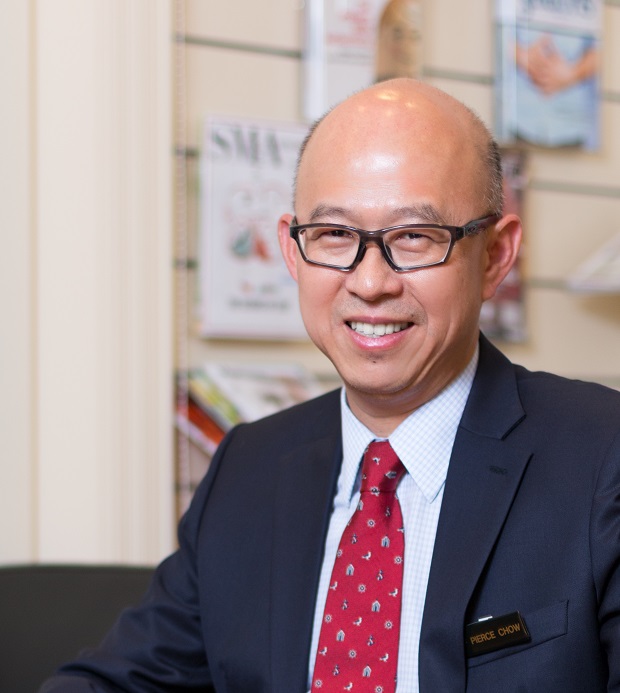This research could have a profound impact on those at high risk of the illness around the world.
A landmark study underway in Singapore will use cutting-edge science to look into improving early diagnosis for those at high risk of primary liver cancer, also known as hepatocellular carcinoma (HCC).
Only 20 per cent of cases of HCC in Singapore are diagnosed at an early stage, when cure is possible. “HCC is one of the fastest-growing cancers and early diagnosis is challenging. The liver is an internal organ not visible to the naked eye, and by the time HCC is symptomatic, it is usually at a later stage,” said the study’s Principal Investigator, Professor Pierce Chow (below), Senior Consultant, Department of Hepato-biliary and Transplant Surgery, Division of Surgery and Surgical Oncology, Singapore General Hospital (SGH) and National Cancer Centre Singapore (NCCS).

Led by NCCS, the ELEGANCE study (EarLy DEtection of HCC: miRNA, microbiome and imaging biomArkers in the evolution of chroNiC livEr Disease in a high-risk prospective cohort) targets to enrol 2,000 people at high risk of HCC by April 2022.
The study has three main aims, the first being to develop a better way to diagnose early-stage HCC through improved blood tests.
“We hope that the study will lead to a more accurate and convenient diagnostic that can even be administered at a family physician’s clinic so that a higher proportion of patients who develop HCC will have it diagnosed at an early stage for better treatment outcomes,” Prof Chow said.
Researchers will work together with Singapore biotechnology company MiRXES to develop a blood test to detect a group of microRNA (which are molecules released by cells to control the types and amounts of proteins they make) found in the blood when HCC develops. An earlier pilot study has shown that a panel of microRNA is significantly more effective than the current standard-of-care combination of ultrasound and a blood test for the biomarker alpha-feto protein carried out every six months to screen those at high risk of HCC.
The second aim of the study is to quantify a person’s risk of developing liver cancer so that doctors can prioritise those who are at a higher risk. It will involve a non-invasive magnetic resonance imaging (MRI) scan that is safely done without the use of radiation or injection of a contrast.
Industry partner Perspectum will develop an artificial intelligence algorithm based on the data from the scans to predict a patient’s risk of developing HCC and the progression of chronic liver disease.
The third goal of the ELEGANCE study is to identify how changes in metabolites in the blood and bacteria species in stools are related to changes in the molecular biology of a person as he or she develops liver cancer. Stopping these molecular processes from developing may prevent HCC from developing in the first place, which will be a ground-breaking advancement in the field of medicine. The results could potentially have the biggest impact on society among the study’s three aims.
This research is being carried out in collaboration with the Nanyang Technological University’s Singapore Phenome Centre and the Asian Microbiome Library (AMiLi), and will involve understanding changes in metabolites (which are produced by cells during metabolism) in the blood, urine and bacteria in the patient’s stools to assess the steps needed to be taken to prevent or delay chronic liver disease from deteriorating and prevent HCC from developing.
“We need to have a more definitive understanding of these processes so that we can prevent them from happening. Such prevention should not be painful for patients. It might just be a change in lifestyle or the need for certain food supplements to be taken, for example,” said Prof Chow.
“Science provides hope. Taking part in this study does not only help participants, but society too. It gives hope to patients with liver disease that liver cancer can be detected earlier or prevented,” he added.
The ELEGANCE study is a whole-of-nation effort involving six hospitals and eight polyclinics, which will recruit patients for the project, with support from the government and industry.
Lower you risk of liver cancer! Here are 5 ways how.
Did you know?
• Each year, approximately 500 people are diagnosed with HCC in Singapore. The most important risk factors for HCC are liver cirrhosis (hardening of the liver), chronic viral hepatitis, alcoholic hepatitis, non-alcoholic fatty liver disease, and non-alcoholic steatohepatitis.
• HCC is one of the fastestgrowing cancers, with a tumour doubling in size in about 200 days, therefore early detection can be life-saving.
• Treatment, such as a liver transplant, can be curative at an early stage.
Get the latest updates about Singapore Health in your mailbox! Click here to subscribe.
Tags:
Liver
;
;
Liver;
;
News Article;
;
National Cancer Centre Singapore;SingHealth;
;
Singapore Health;
;
;
;
;
Singapore Health
